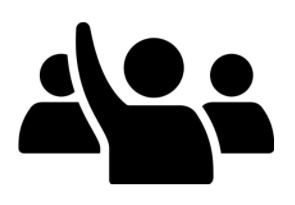We are working on developing the following areas:
- Use Social Studies inquiry processes and skills to — ask questions; gather, interpret, and analyze ideas; and communicate findings and decisions
- Develop a plan of action to address a selected problem or issue
- Construct arguments defending the significance of individuals/groups, places, events, or developments (significance)
- Ask questions, corroborate inferences, and draw conclusions about the content and origins of a variety of sources, including mass media (evidence)
- Sequence objects, images, or events, and recognize the positive and negative aspects of continuities and changes in the past and present (continuity and change)
- Differentiate between short- and long-term causes, and intended and unintended consequences, of events, decisions, or developments (cause and consequence)
- Take stakeholders’ perspectives on issues, developments, or events by making inferences about their beliefs, values, and motivations (perspective)
- Assess the significance of people, places, events, or developments at particular times and places (significance)
- Identify what the creators of accounts, narratives, maps, or texts have determined is significant (significance)
- Assess the credibility of multiple sources and the adequacy of evidence used to justify conclusions (evidence)
- Characterize different time periods in history, including periods of progress and decline, and identify key turning points that marked periods of change (continuity and change)
- Determine which causes most influenced particular decisions, actions, or events, and assess their short- and long-term consequences (cause and consequence)
- Explain different perspectives on past or present people, places, issues, or events, and compare the values, worldviews, and beliefs of human cultures and societies in different times and places (perspective)
- Make ethical judgments about past events, decisions, or actions, and assess the limitations of drawing direct lessons from the past (ethical judgment)
|
We will be investigating the following content this year:
- anthropological origins of humans
- the urbanization and migration of people
- human responses to particular geographic challenges and opportunities, including climates, landforms, and natural resources
- features and characteristics of civilizations and factors that lead to their rise and fall
- origins, core beliefs, narratives, practices, and influences of religions, including at least one indigenous to the Americas
- scientific, philosophical, and technological developments
- interactions and exchanges between past civilizations and cultures, including conflict, peace, trade, expansion, and migration
- social, political, legal, governmental, and economic systems and structures, including at least one indigenous to the Americas
- different systems of government
- economic policies and resource management, including effects on indigenous peoples
- globalization and economic interdependence
|


